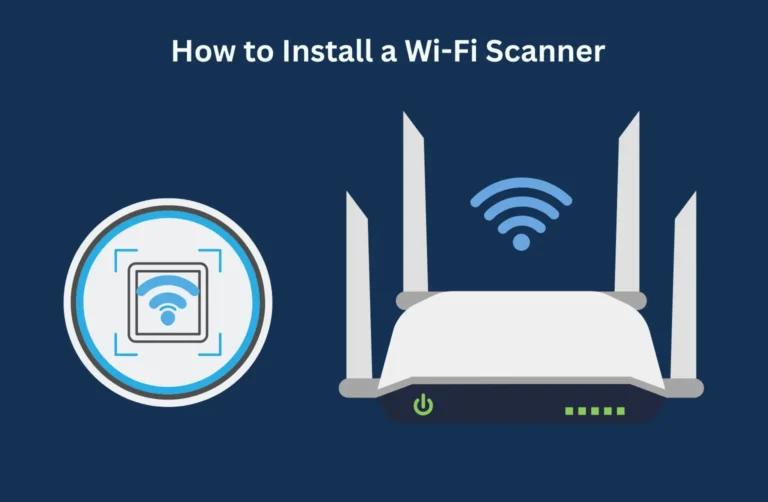Why Use a WiFi Scanner?
Before we get into the how-to, it helps to understand why Wi-Fi scanners are so helpful:
- Identify interference: See which channels nearby networks are using.
- Improve performance: Move your network to a less crowded channel.
- Check security: Ensure your encryption settings are robust and secure.
- Monitor signal strength: Find dead zones in your villa or office.
- Troubleshoot issues: Diagnose connection problems quickly and efficiently.
In places like Dubai Marina or Business Bay, where dozens of networks compete for the same airwaves, scanning your Wi-Fi environment can make a big difference

Your Complete Wi-Fi Scanner Setup & Optimization Guide
Step 1: Choose the Right Wi-Fi Scanner
Many Wi-Fi scanner tools, both free and premium, work on Windows, Mac, Android, and iOS. Some popular options include:
- NetSpot (Windows, Mac): User-friendly interface and detailed reports.
- Acrylic Wi-Fi Home (Windows): Great for in-depth analysis.
- Wi-Fi Analyzer (Android): Simple and effective for smartphones.
- AirPort Utility (iOS): Apple’s built-in scanner.
If you run a business network in Dubai, consulting a certified WiFi Technician Dubai and investing in a professional-grade scanner like Ekahau or inSSIDer can greatly enhance your wireless performance.
Step 2: Download and Install the Software
Here is how to get started on Windows and Mac:
- Visit the official website of the scanner you have chosen.
- Download installation files.
- Open the files to install.
- Follow the setup guide on your screen.
- Launch the app when installation is complete.
Tip: Download apps only from verified platforms.
Step 3: Approve Necessary Settings
Most Wi-Fi scanners need permission to access your device’s wireless hardware.
- Allow the app in firewall settings when Windows asks.
- On Mac, you should approve the app in System Preferences > Security & Privacy.
- On Android and iOS, the app will request location permissions (this is necessary for scanning networks).
If your Mac is not responding to scanner software, our MacBook repair experts in Dubai can help diagnose the issue.
Step 4: Start Scanning
Once the app is running:
- Click Start Scan or a similar button.
- The scanner will list all nearby networks.
Look for information such as:
- Network name (SSID)
- Signal strength (RSSI)
- Channel
- Frequency band (2.4 GHz or 5 GHz)
- Security type (WPA2, WPA3)
If you see many networks on the same channel as yours, it is a sign of congestion.
Step 5: Analyze and Optimize
Use your scan results to make changes:
- If your channel is crowded, log in to your router and switch to a clearer one.
- Prefer 5 GHz for better performance if your device allows it.
- Use strong encryption like WPA2 or WPA3 for security.
- Note areas with weak signals and consider adding a mesh Wi-Fi system or extender.
Businesses in Dubai can especially benefit from regular scans to maintain a smooth, secure connection for employees and clients. Our team at Azizi Technologies provides full Wi-Fi planning and optimization support.
Step 6: Schedule Regular Scans
Wi-Fi environments change over time as neighbors install new routers or devices. It is a good idea to:
- Scan your Wi-Fi regularly to keep it secure.
- Re-scan whenever you experience slowdowns.
- Keep records of changes for easier troubleshooting and problem resolution.
Final Thoughts:
Using a Wi-Fi scanner is an easy way to boost speed and keep your connection secure. Whether you live in a bustling Dubai tower or a suburban villa, taking control of your Wi-Fi environment helps you stay productive and protected.
If you’d like professional help setting up your network or analyzing your Wi-Fi, Azizi Technologies UAE is here to assist. From advanced Wi-Fi support in Dubai to custom network planning, our team has the experience to keep your connection fast and reliable.

